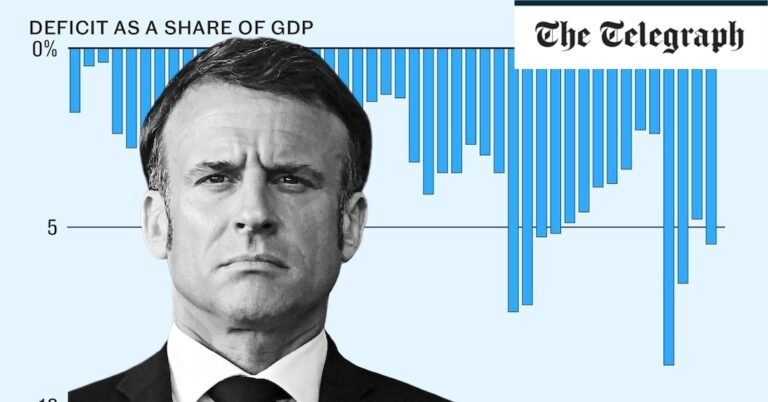Not only is the government overspending, debt levels in Europe’s third-largest economy are now only dwarfed by Greece and Italy within the EU.
“The French state is clearly living beyond its means,” says Maxime Darmet, a Paris-based economist for insurer Allianz Trade.
It is not for a lack of taxation: France has the highest burden among all OECD countries, a group of mostly rich nations.
Macron has pledged he will bring the deficit down to the EU’s 3pc target by the end of his term in 2027. This will require finding an extra €70bn a year, either through spending cuts or tax rises.
With his fiscal credibility at stake, he has renewed his promise to take an axe to public spending. Macron has announced €10bn of cuts this year and €12bn in 2025.
“The spending they would most likely cut first is unemployment benefits,” Darmet says. “They come to about €80bn in total. Then they might target housing benefits, which are about €16bn.”
However, he adds: “Besides that, their hands are tied.”
Much like the UK, France’s health system has seen waiting times soar since the pandemic, meaning cuts to the health budget are unlikely.
Getting a GP appointment on average takes 10 days now compared with only four in 2019, according to Fédération Hospitalière de France.
Cuts to the defence budget are also off the table given the growing threat posed by Vladimir Putin. France will only hit Nato’s 2pc spending target this year after dramatically increasing military expenditure, with plans to steadily grow it further.
“The elephant in the room is obviously the pensions, which is the biggest spending item of about €320bn annually,” says Darmet. “They could find savings potentially on pensions, but retired people are the biggest electorate of President Macron so the ministers and the president are ruling out any cuts.
“It’s getting increasingly difficult to find new savings.”
Once unthinkable, many now believe tax rises may be the only option.

